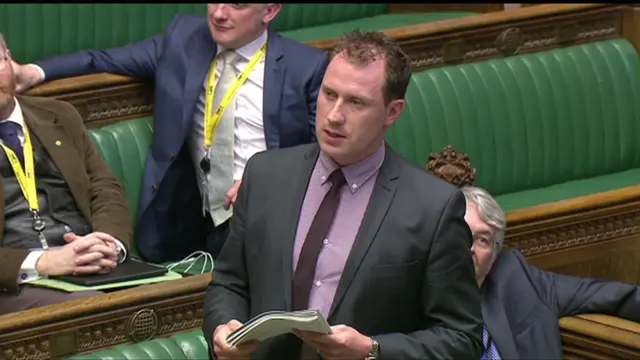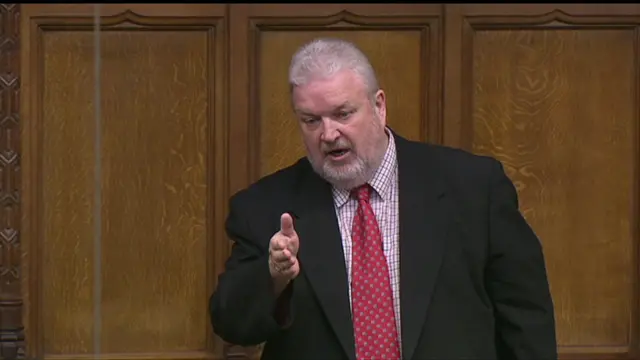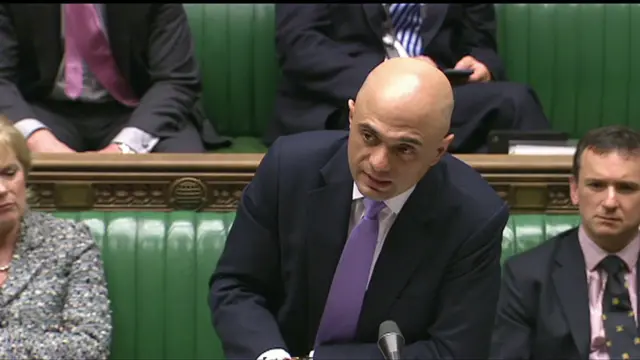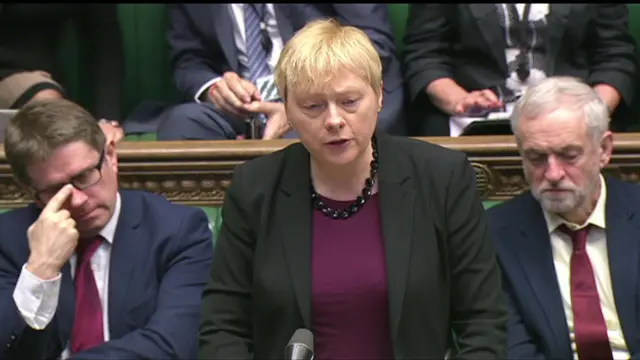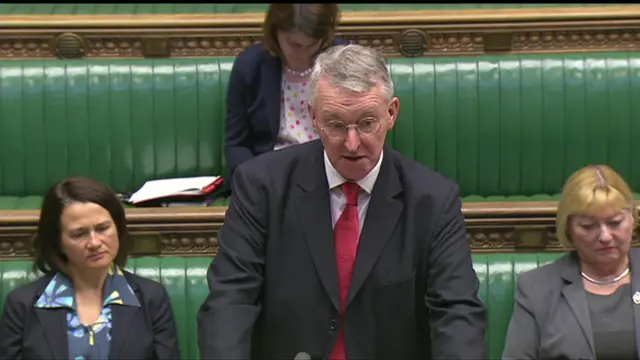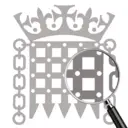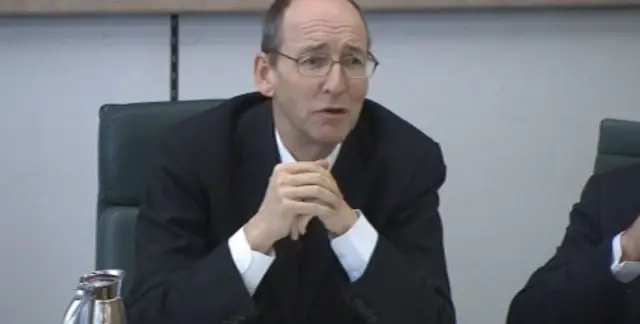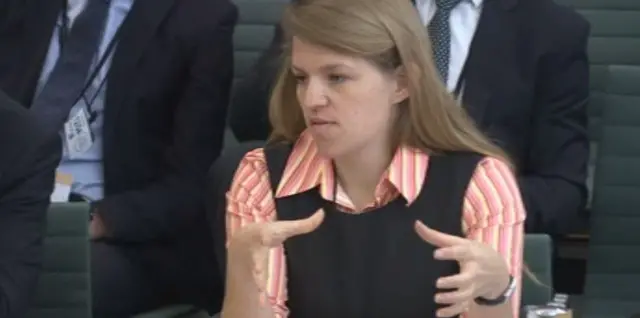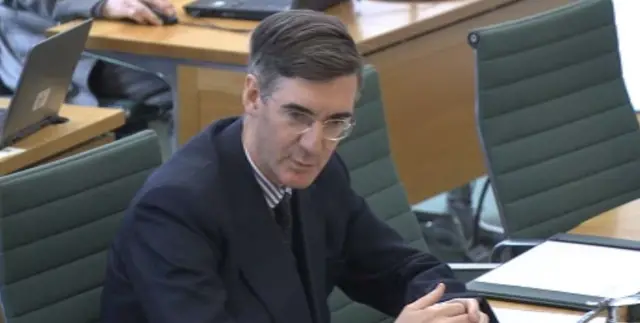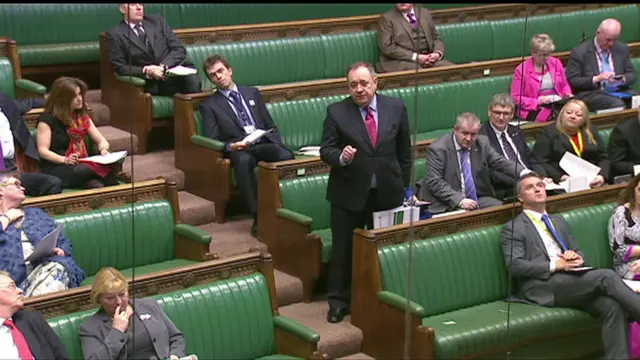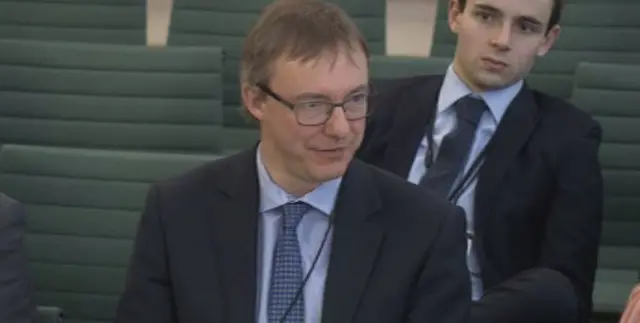'You need your own steel industry'published at 13:53
UK steel industry debate
 House of Commons
House of Commons
Parliament
Conservative MP Peter Bone says the UK steel industry is needed.
"If there is some war in the future you need your own steel industry, otherwise you can't defend yourself," he argues.
He blames the "unfair dumping" of cheap Chinese steel on the market, as well as "state aid rules from the EU".
